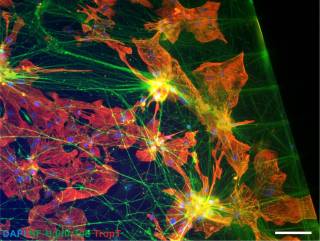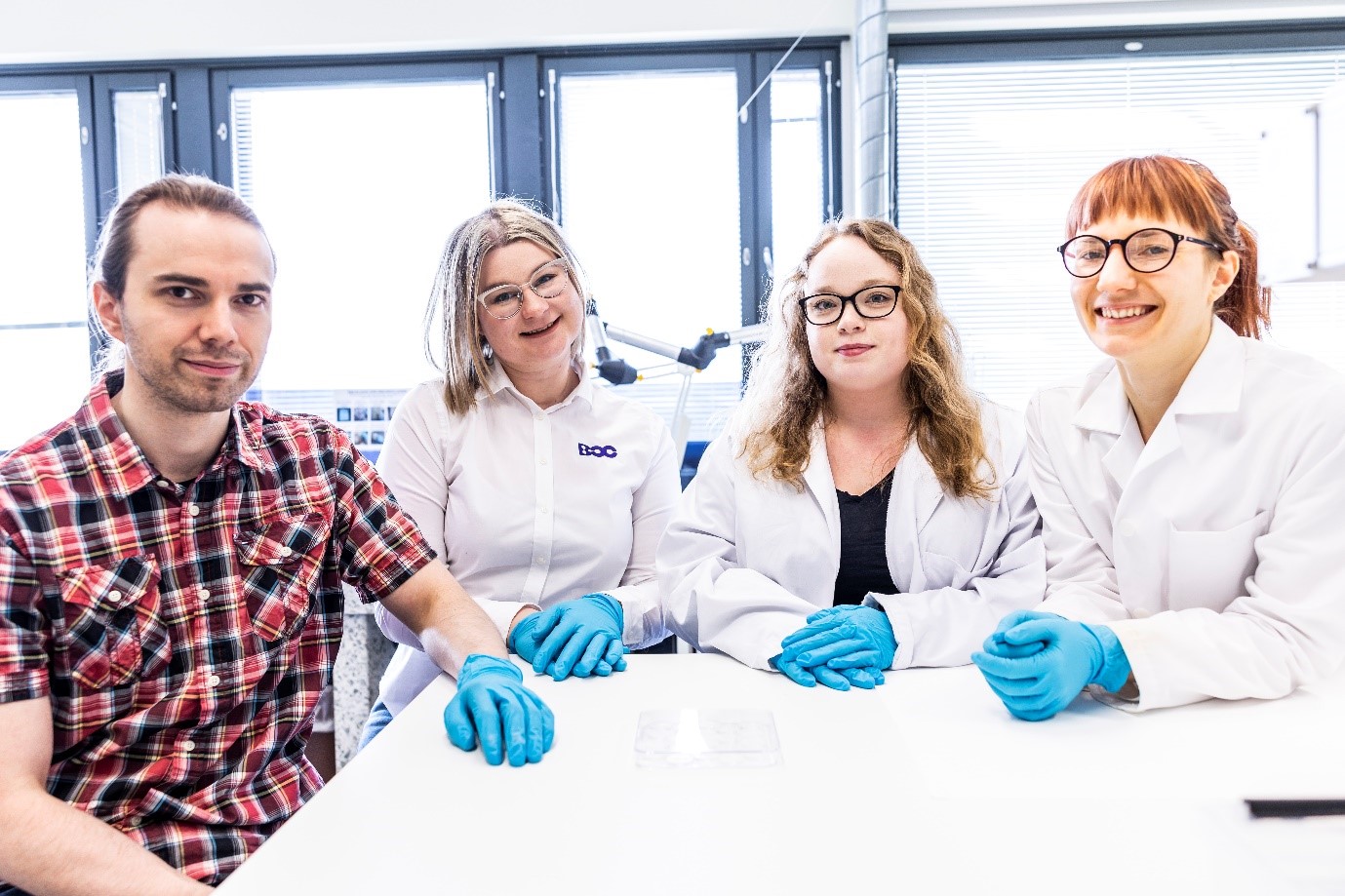Written: Satu Jäntti and Martta Häkli
Photo: Jonne Renvall
Human heart is innervated and regulated by the cardiac autonomic nervous system (cANS). The heart and cANS undergo comaturation during the embryonic development and the pathological conditions can progress to cardiovascular diseases. Here, the in vitro coculture system of human induced pluripotent stem cells (hiPSC)-derived neurons and cardiomyocytes on a compartmentalized 3D3C chip showed the formation of physical and functional connections between the two cell types. The 3D3C chip isolated neurons in their respective compartment, allowing the axons to grow through the microtunnels into the adjacent compartment to interact with cardiomyocytes. The separate medium chambers for each compartment enabled the culture both cell types in their respective media. The 3D3C chip allowed mimicking the in vivo axon-mediated interaction between the cANS and heart.
This model can be utilized in the future studies of neuromuscular junctions in disease modeling, drug screening and toxicity assays as well as in the studies of comaturation of both cell types.
The publication is now available in International Journal of Molecular Sciences.

Martta Häkli*, Satu Jäntti*, Tiina Joki, Lassi Sukki, Kaisa Tornberg, Katriina Aalto-Setälä, Pasi Kallio, Mari Pekkanen-Mattila, and Susanna Narkilahti (2022). Human neurons form axon-mediated functional connections with human cardiomyocytes in compartmentalized microfluidic chip, Int. J. Mol. Sci. 2022, 23, 3148.
This study was supported by Academy of Finland (grant number 336665 to S.N., 336783 to K.A.-S. and 312411 to P.K.), The Finnish Cultural Foundation, The Maud Kuistila Memorial Foundation, Inkeri and Mauri Vänskä Foundation, Paavo Nurmi Foundation, The Finnish Foundation for Cardiovascular Research, Sigrid Juselius Foundation and Pirkanmaa Hospital District.

